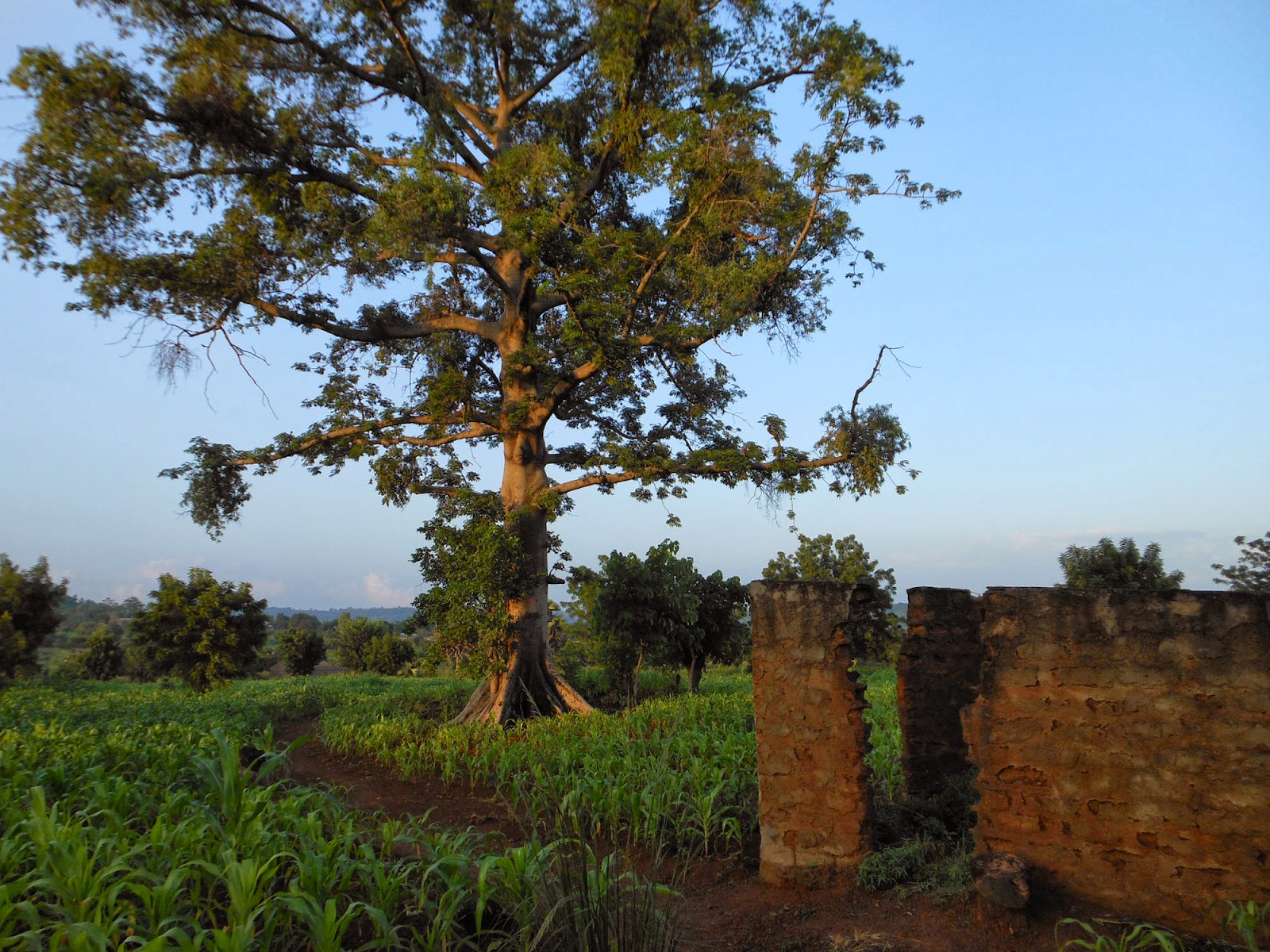Trying, on my porch and for the third time, to boil water with a gracelessly aging camping stove, I go through my alternatives. Starving seems the easiest option effort wise, but the least desirable in other ways. I could also walk back into my village, I’m comfortable with the route now, and purchase quick calories from a vendor, but cookies and deep fried dough are only appetizing in moderation. Instead, I resign myself to sitting and reasoning out what could impede my simple goal: really hot water. My pot may be too large and thick; I could be attempting too much water; there may not be enough fuel; the stove’s heat could be too weak to handle any one or combination of the aforementioned. Devoted to making a simple dinner, I ignore the sound of small footfalls in my compound. An audible breath shakes me from absence and I turn to see a small child nearby. His clothes are stained with dirt, fresh or the kind that eventually fails to fade away, and he’s wrapped, just as I must have been, in the dusky leftovers of daylight.
“Bienvenue a Tandjouare!”, my welcome party exclaimed, each member seated along the edge of the porch. Everyone there, from my work partner in the local NGO to a high school teacher, seemed eager and kind. Eating a delicious mixture of pate and green sauce with my new colleagues, I fumble through their questions and give a million “mercis”. My own questions, nervous, build and sit mentally: How long and how much have they been anticipating my arrival? What can I do to assist them and their (my?) community? Where can I get water? The previous few hours dropping off friends haven’t done my French any favors and I’m often distracted by a huge tree near my compound. Set against the stormy sky, it’s massive grey trunk and green splayed branches look as though they’re the essence of Tandjouare. As if all the corn and clearings around it, my house and the nearby compounds, the village and our impermanent lives, exist to make it that much grander by comparison. My fixation on the tree, attempts to listen, awkward responses, and the meal itself mélange until, breathing out, we hear rain against the tin roof. Then, like every coloring mixing to make white, verbal and mental silence. There is only the rain, the tree, and us, drenched by the clacks of a deluge deferred. After several minutes, the NGO’s director, a graying, older gentleman in white with a deep voice offset by still innocent eyes, explains that rain is a benediction and bodes well for my service. I thank him and smile, sincerely, with great hope.
Our eyes remain fixated on one another for several, prolonged seconds. He seems to be studying me before, slowly, dropping to one knee. His yellow gaze glistens as he asks, with the conviction one expects in church and private prayer, for money. I sit silently; giving it would be easy, kind, and, perhaps, offer temporary relief from the hardships in his life. He’s a silver screen in my head, and I readily project every starving African child ad from home. But, reality returns: I can give assistance, information, and connections, but I’m neither millionaire philanthropist nor voluntourist. He asks again; I respond that I don’t have money (while hoping that I can help his community). He asks again; I respond that I don’t have money (while hoping that, somehow, I can help him in the future). He leaves, and I’m alone on the porch with an overused camping stove and barely boiling water. I imagine his perspective, with a white man from America, “the land of dreams”, suddenly living in a house next door. He’s preparing nice food, in nice clothes, with a personal stove. He can take hours, three times a day to sit, cook, and admire an old tree. He has family and friends somewhere with houses, cars, and bountiful food.
Wind rustles high leaves in the bluish twilight and I eat. A benediction.
